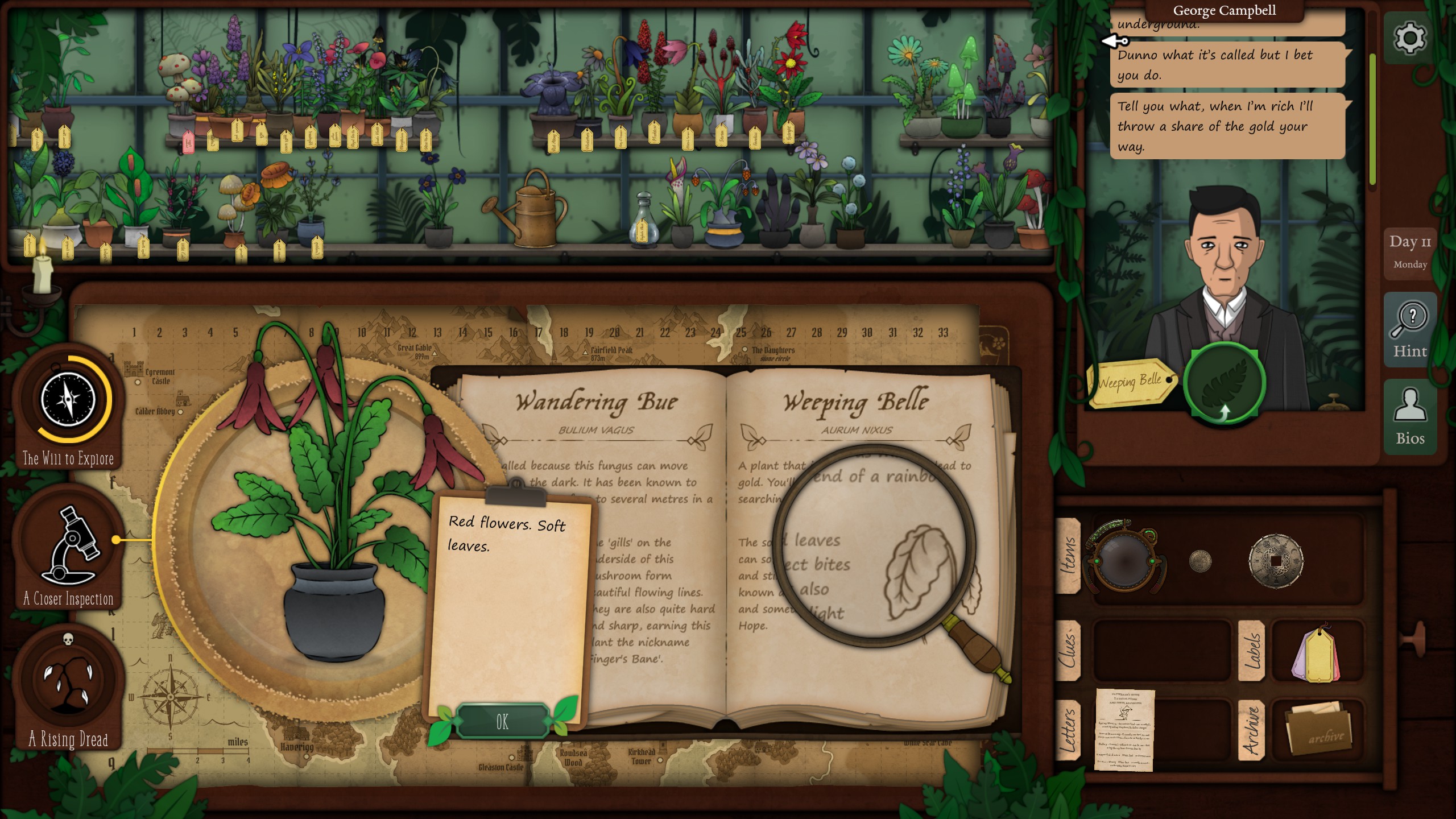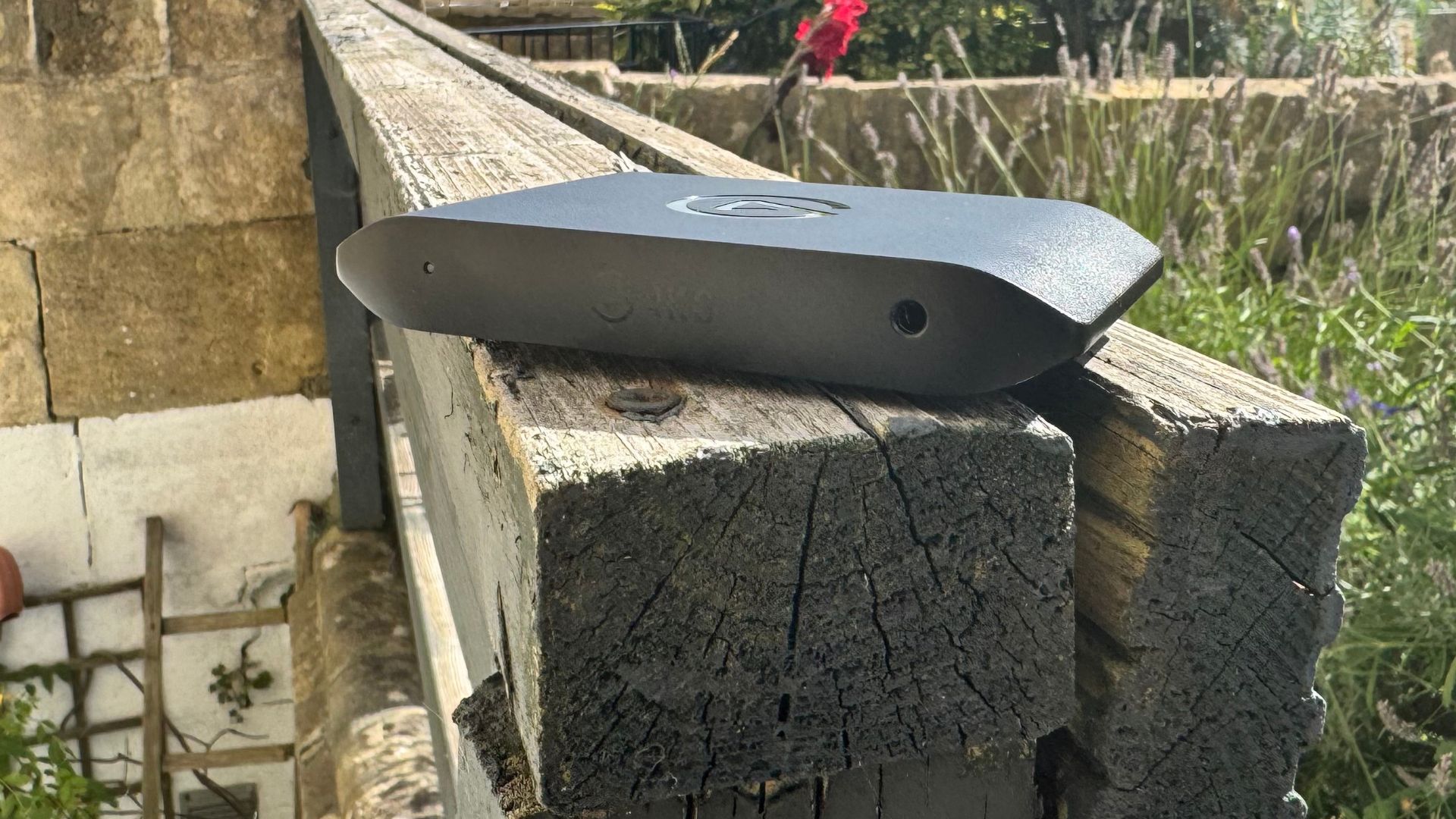Our Verdict
A beautiful and engrossing detective game packed with mysteries, puzzles, and intrigue.
PC Gamer's got your back
What is it? A deeply engrossing puzzle game about identifying plants and solving mysteries.
Developer: Bad Viking
Publisher: Iceberg Interactive
Reviewed on: RTX 2080, Intel i7-9700K , 16GB RAM Multiplayer: No
Link: Official site
Strange Horticulture is the best detective game I've played in years, and it's mostly about staring at plants. As the new owner of a small shop in a quaint Victorian town, I've only got three things: a small collection of unusual and unidentified plants, an aging botany book with a handful of entries, and my wits. With them I manage to solve dozens of little mysteries, untangle a few major ones, and save the world.
Then I played through it again and didn't save the world—but I did unleash an unspeakable horror upon it. Also, this one time? I straight-up murdered a guy with plants because he was a little bit rude.
Strange Horticulture takes place almost entirely behind the counter of the plant shop, as each day customers visit one by one. Sometimes they know the name of the plant they're looking for, but usually they only have a few small details—they know it has red flowers, or that it cures a stomach ailment, or that it's a nice decorative plant for a wedding. Occasionally they have the name wrong, or only know the latin term for it. Sometimes the lack of information is actually a clue: a guy who can't remember anything about the plant he's looking for, or even why he's in your shop at all, might be after an herb that will improve his memory.
Using the few details each customer gives me, I look through the plants on my shelf, dragging them onto my desk for a closer examination. Then I flip through the pages in my botany book, which contains plant names, drawings, and descriptions, to try to figure out which plant to give my current customer. Every person who enters my shop presents me with a tiny little mystery, and thanks to the beautiful and gently animated plants, well-illustrated drawings, and elaborate descriptions in my botany book, they're always a pleasure to solve. When I've made my best guess I hand the customer a plant, and the game tells me if I'm right or wrong.
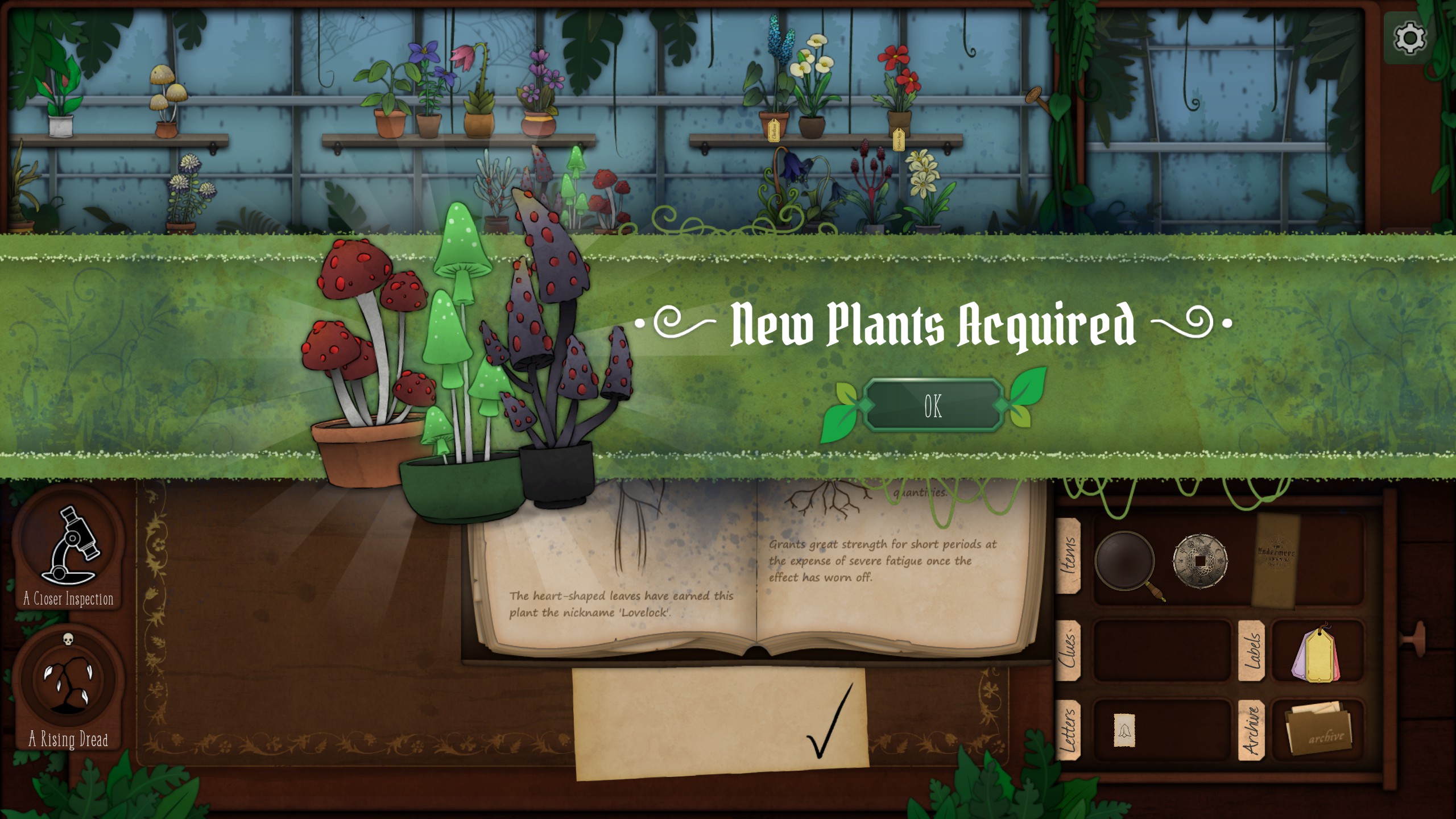
Flower power
It's wonderfully tricky, too, especially as my inventory slowly grows from just a few plants to a massive collection of nearly 80. My botany book fills with new entries, giving me a lengthy tome to page through while I play plant detective. Patience and close scrutiny are required—just because a plant has heart-shaped leaves doesn't mean it's the only plant with heart-shaped leaves, and sometimes even details about the scent of the plant, the number of petals on a flower, or how its leaves feel under my fingers come into play.
The drawings in the book are excellent and highly detailed but typically they don't show the entire plant—sometimes the drawing only shows a leaf and not the flower, or even more curiously a cross-section of a stem or bulb that looks very little like the actual, complete plant. Dragging plants under my microscope to stare at them and closely reading descriptions takes time and close attention, but successfully identifying a plant is incredibly satisfying, a little mystery with a handful of clues.
There's only a minor punishment for giving someone the incorrect plant—mess up three times in the same day and you'll lose your mind, Lovecraft-style, and have to play a short minigame to piece it back together (and you won't lose any progress). But that small deterrent isn't even needed. Identifying a plant correctly is so damn enjoyable I'm more disappointed in myself when I make a mistake than any penalty a minigame could provide.
Keep up to date with the most important stories and the best deals, as picked by the PC Gamer team.
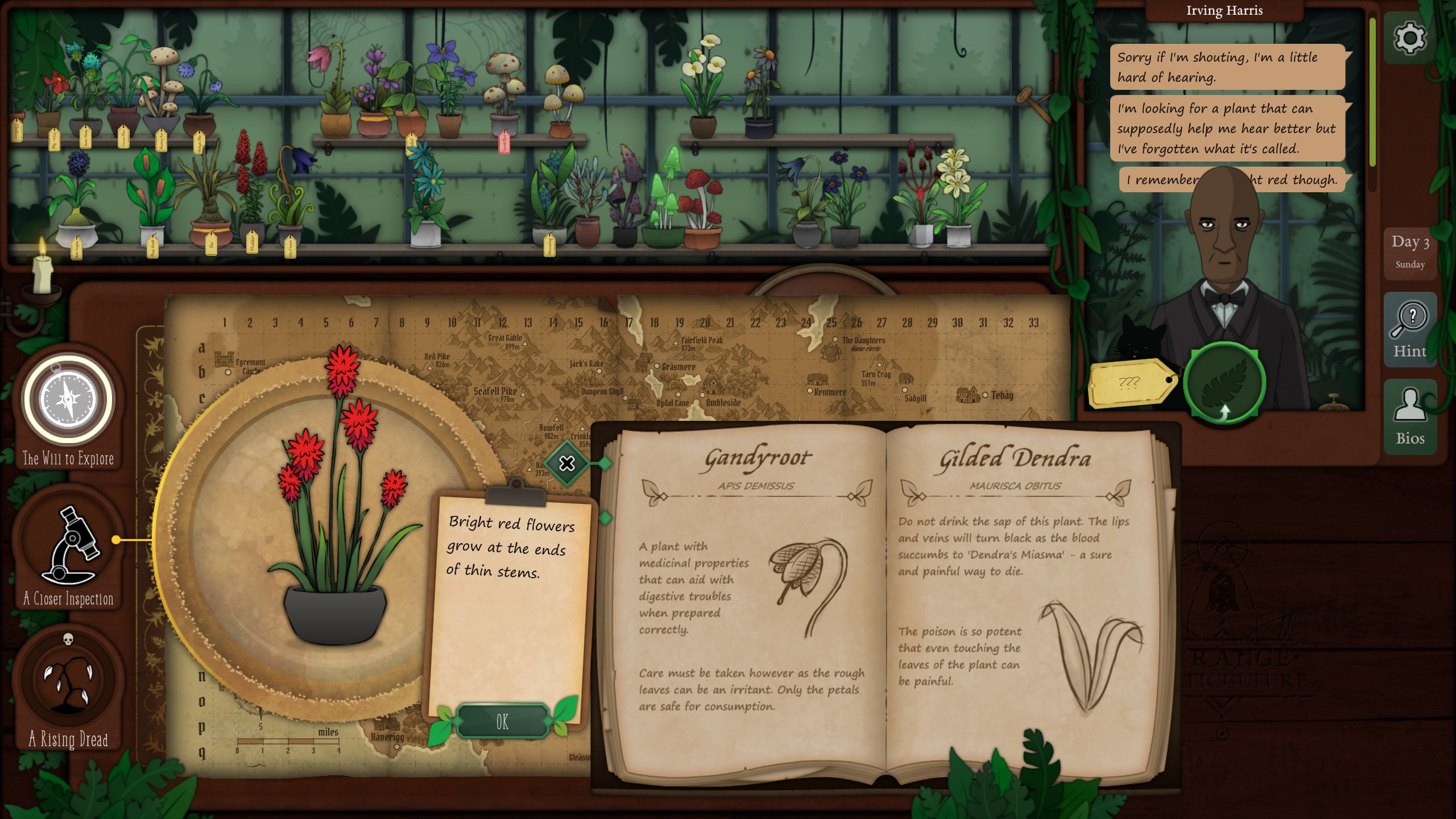
Along with helping customers in the shop, there's a large map to unfold on your desk, which you can click on to visit its locations. Exploring the map is usually the result of receiving a letter from the mailman, or finding a lost note in a forgotten drawer in your desk, or getting cryptic messages each evening after you close your shop. The map is the other half of Strange Horticulture's detective experience, where you decode clues to discover the location of new plants or events.
The map puzzles aren't quite as challenging as identifying plants, but the puzzles are still creative and varied and the rewards—more plants for your shop!—make each discovery worthwhile. As you progress through the game you receive new tools that unlock different ways to discover even more hidden locations. And midway through Strange Horticulture an alchemy system is introduced as well, giving you even more mysteries to solve as you attempt to identify and mix several plants together in your laboratory.
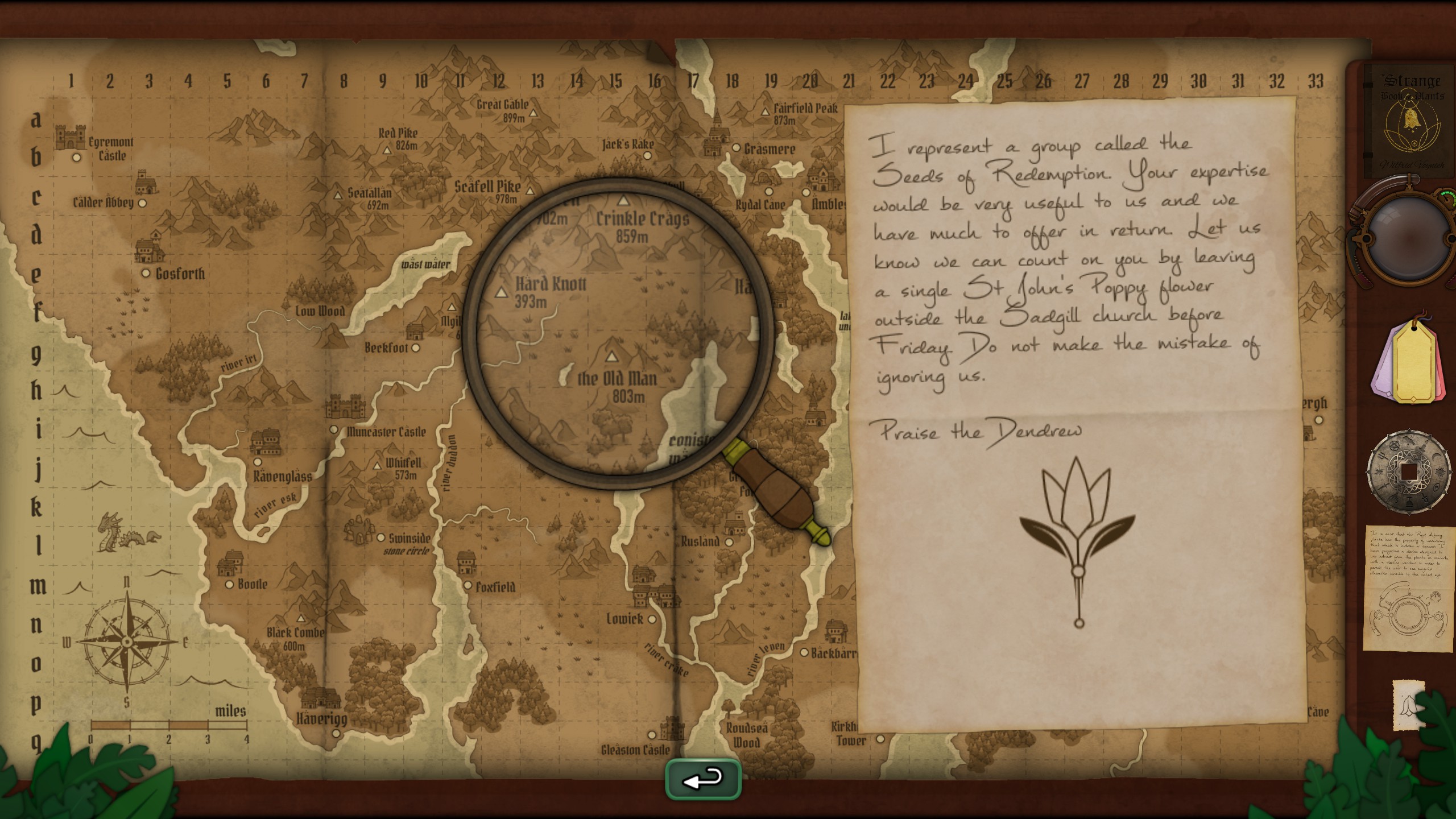
Fungus among us
One of my favorite moments was when a woman came into the shop and handed me a note from her husband, who'd found an unusual mushroom in the woods. After examining the note and map I was able to figure out where he'd collected the 'shroom and I brought one back to my shop. A few days later the woman returned, saying her dumb husband had eaten the mushroom and was now sick. Did I have a cure?
I felt like a genuine Sherlock Holmes, even though I'd just been peering at mushrooms so I could cure a guy's stomach cramps.
I just happened to have found (by solving a completely unrelated multi-part puzzle) a list of five mushrooms, the symptoms caused by eating them, and the cures for each. So I set to work examining my book's mushroom entries to first discover the name of the mushroom the dummy had eaten, and then work out which plant would cure him.
That was difficult—several mushrooms look quite similar—and I wasn't entirely sure my identification was correct, so I had to resort to eliminating all the other mushrooms in my collection, and their cures, which took long minutes of peering at fungi and flipping back and forth through my botany book. When I'd finally narrowed all the potential cures down to one, I handed it to the worried wife. The game told me I was correct, and I literally raised both my hands over my head in celebration. I felt like a genuine Sherlock Holmes, even though I'd just been peering at mushrooms so I could cure a guy's stomach cramps.
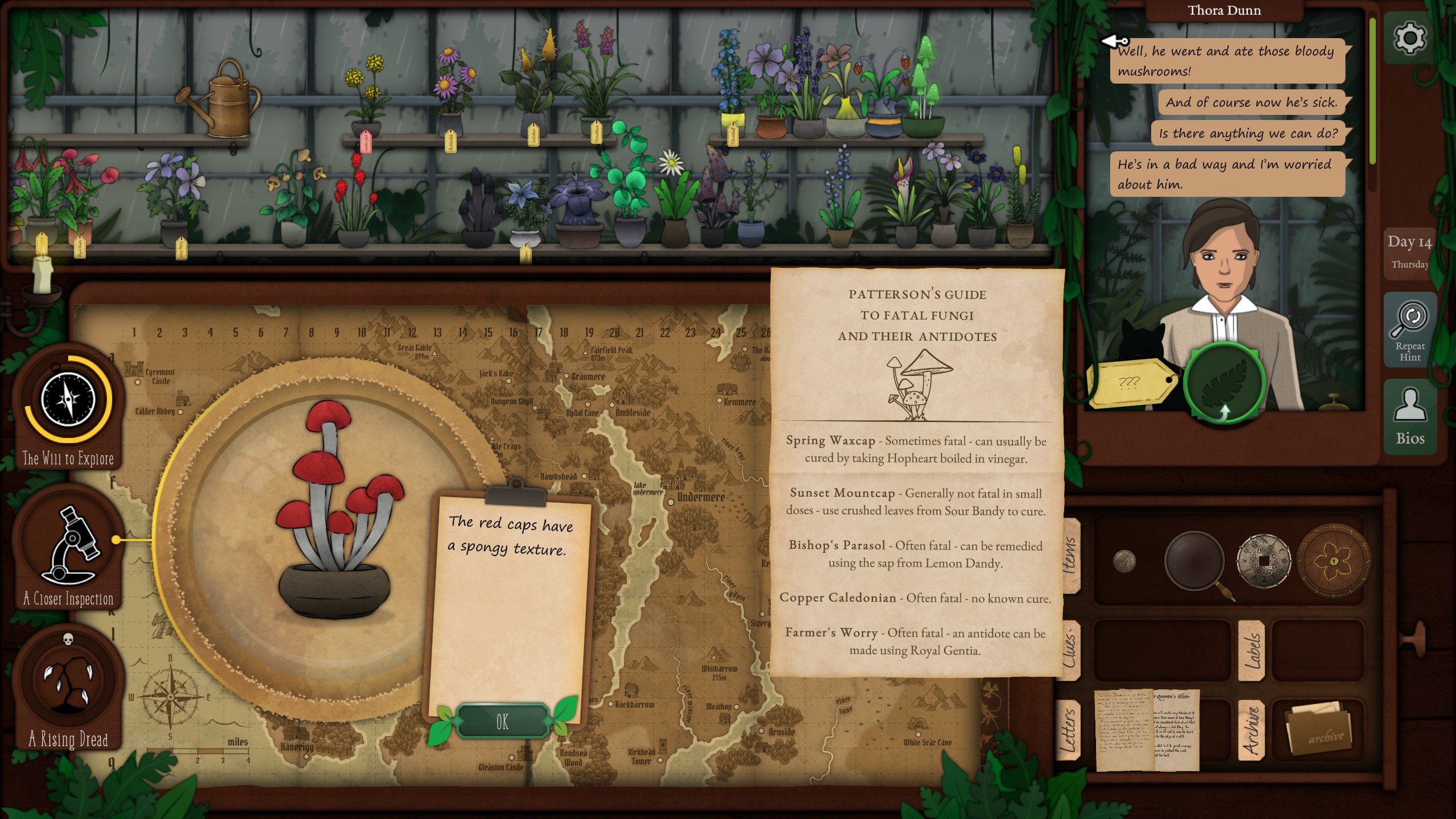
Beyond the customers looking for herbs that will cure bad vision or ease upset stomachs or help them sleep, there are recurring characters who repeatedly visit the shop with a darker and grander purpose. There's a mysterious dark entity out there, slowly growing in power and threatening the land. Some of the characters you meet want to banish it back into the darkness, while others want to control it, or kill it, or worship it as a god.
Choices arrive from time to time that lead to branches in this story, and you make those choices the same way you do everything else: with plants. A hunter came into my shop and said he wanted to face the dark beast and destroy it, and asked me for a plant that would give him extra power for the battle. But a cult member had visited just a few days before, suggesting I instead give the hunter a plant that would weaken him, and it was up to me to decide if I was on Team Beast or Team Hunter. A librarian, an occult scholar, and a mysterious hooded woman in a mask have their own agendas and likewise I had to choose which to side with and which to betray. The dialogue (which is text, not voiceover) is excellent, written with as much skill and care as the descriptions in the botany book.
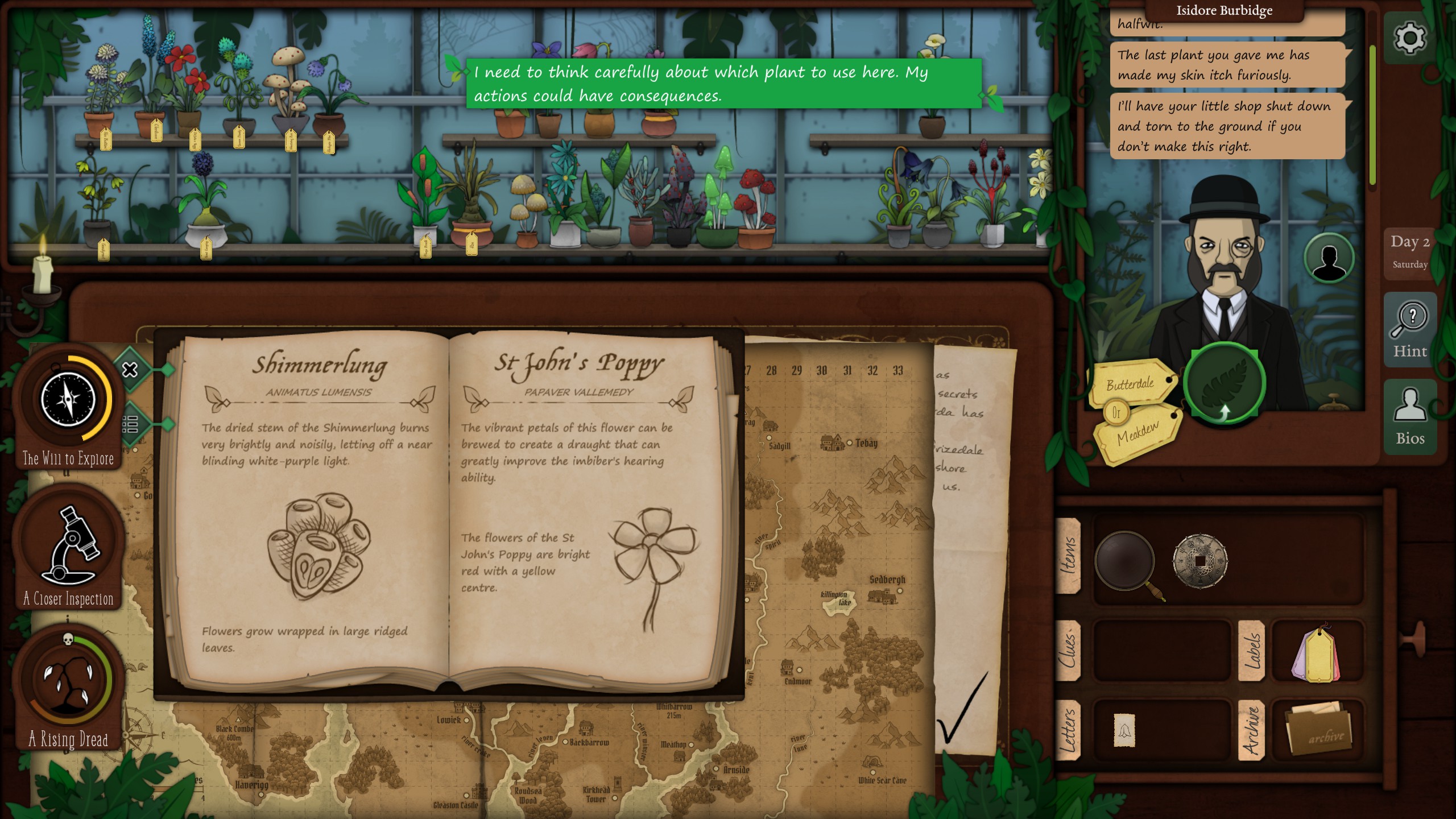
Little shop of horrors
And there's all sorts of satisfying fiddly business to do as you play. Your book, map, letters, clue-filled notes, magnifying lens, and other items can be dragged around, set down on your desk, or stored in your desk drawer which can open and close. Plants can be rearranged on shelves and watered with a little watering can. At the end of each day I found myself sorting and arranging all the new plants I'd gained that day, tidying up my desk, putting everything in its correct compartment in the drawer, and closing it as if I were really running a plant shop (and detective business!) and wanted to keep things neat and organized. Did I mention you have a cat? It sits (and naps) on your counter. You can pet it and it'll purr happily.
He was rude to me and I decided to poison him. I regret nothing.
You can have the game automatically label plants you've correctly identified, but I like typing my own labels, especially when I'm not 100% sure about my investigative work. Early in my first game a man dropped off a plant because he had a bad feeling about it. "Bad plant?" I wrote on a red label and stuck it onto the flower's pot. Hours later I was able to find it quickly when a similar description was mentioned in a note. I only wish I was as organized in real life as I was in my little plant shop.
I've played through Strange Horticulture three times now (my first game took about 7 hours). I made different choices each time, and experienced three different endings (of which there are at least eight). In one ending, all of Strange Horticulture's recurring characters survived, though one was maimed. In another, several died and one was driven insane. In a third, one guy perished simply because he was rude to me and I decided to poison him. I regret nothing.
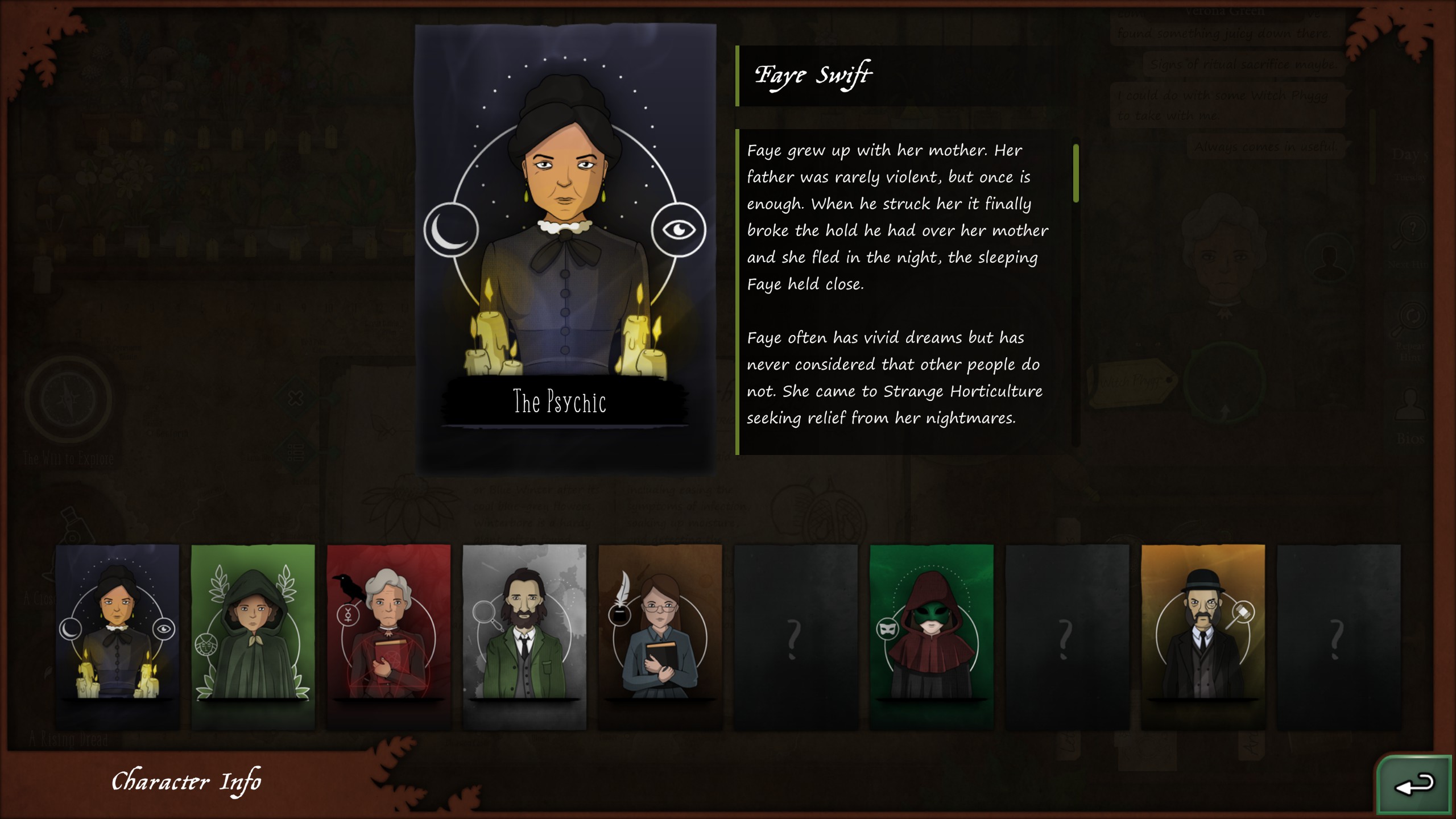
While the plants and their identifications don't change in subsequent playthroughs, there are different alchemical concoctions to brew depending on your choices and the fate of the characters vary greatly. I've fully enjoyed each playthrough, and I plan to play again. I'm fairly obsessed with Strange Horticulture and I want to discover every single ending there is. That's what a good detective does.
And while I love the main storyline of witchcraft and demons and obsessed cultists, I'm mostly just happy to study all those beautiful flowers and herbs and mushrooms, flip through my growing book of plants, and affix bright little labels to everything I've correctly identified. Maybe people think I'm just a small plant shop owner solving puzzles. But I know the truth. I'm the world's greatest plant detective. And you really shouldn't be rude to me.
A beautiful and engrossing detective game packed with mysteries, puzzles, and intrigue.

Chris started playing PC games in the 1980s, started writing about them in the early 2000s, and (finally) started getting paid to write about them in the late 2000s. Following a few years as a regular freelancer, PC Gamer hired him in 2014, probably so he'd stop emailing them asking for more work. Chris has a love-hate relationship with survival games and an unhealthy fascination with the inner lives of NPCs. He's also a fan of offbeat simulation games, mods, and ignoring storylines in RPGs so he can make up his own.
